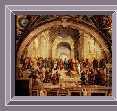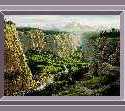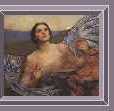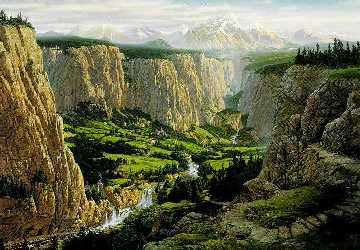Theoretically Speaking
J. R. R. Tolkein
Known as the author of The Lord of the Rings, Tolkein is also a theorist on the genre. His classic work, On Fairy Tales is a must for anyone longing to understand what Fantasy is all about.
A Tolkein Reader
Literary Quality:Includes Tolkein's "On Fairy Stories" as well as "Tree and Leaf," an essay on the place of myth in literature, and several short stories.
Christian Morality: Excellent
Age Appropriateness: Teenager/Adult
Lin Carter
Author and editor, Lin Carter is one of the foster-fathers of the genre, at a time when the pulps ruled and society unsurprisingly frowned. Sadly, his work is almost all out of print. A search on bibliofind will probably be more helpful than one on amazon.
Imaginary Worlds: The Art of Fantasy
Literary Quality:More of a history of the genre than a critique, Carter's classic work is invaluable to any seeking understanding about the origins of Fantastic Fiction. His final analysis tends to lean more heavily upon the "magic" element than I personally agree with, and his ending chapters on worldbuilding tend more towards science fiction than fantasy, but the book is still a wonderful and insightful resource.
Christian Morality: Harmless
Age Appropriateness: Teenager/Adult
Ursula K. LeGuin
Best known for her many and award-winning (although morally questionable) books, including The Left Hand of Darkness and her Earthsea quadrilogy, LeGuin also stands out as a theorist on the genre. Although one may not agree with her literature, her analysis is generally sound, and worthy of a spot on the bookshelf.
The Language of the Night: Essays on Fantasy and Science Fiction
Literary Quality:An excellent resource for those interested in the mechanics of Fantastic Fiction, Le Guin's many essays touch on everything from those who write the books, to what set aparts Fantastic Fiction from other literature - and what makes each great. Told with wit and wisdom.
Christian Morality: Harmless
Age Appropriateness: Teenager/Adult
Michael O'Brien
A modern Catholic author of Realistic Christian Fiction, with such credits as the excellent Father Elijah under his belt, O'Brien now turns his sights towards the theoretical aspect of literature, and theology's place in it. Book available through Ignatius Press.
A Landscape with Dragons
Literary Quality:O'Brien's book is a worthy start to the parents' cry of, "What, besides Narnia for the umpteenth time, can my kids read?!?!?" Focussing mainly on the image of the dragon in myth, fantasy, literature and the arts in general, O'Brien gives a worthy preliminary analysis of the state of the genre and society at large. However, his scope is too broad, his conclusions at times too hasty, and his opinions a tad to the Feenyite side. He often strays from his point, and attempts to equate theology absolutely with literature. He does not take into account "indifferent magic" - i.e., elves, fairies, talking trees, and other strange and therefore "magical" things - "magic," as used in fantasy, not in practice, is either good or evil in his view. He strays into other media than literature, most noticeably into films, criticising - rightfully - Disney's recent wretched versions of fairy tales...however he completely ignores the most pagan film of them all, The Lion King. The book is more than worth a reading, and is highly recommended, however one should keep in mind that he does not separate the art from the theology at all, nor is his argument as tight as I would have liked.
Christian Morality: Excellent/Good
Age Appropriateness: Teenager/Adult
 |
 |
 |
 |
 |
(c) 2000
Updated 13 June, 2000
All Rights Held by the Author.
No part of these pages may be used or copied without express permission of the author.


